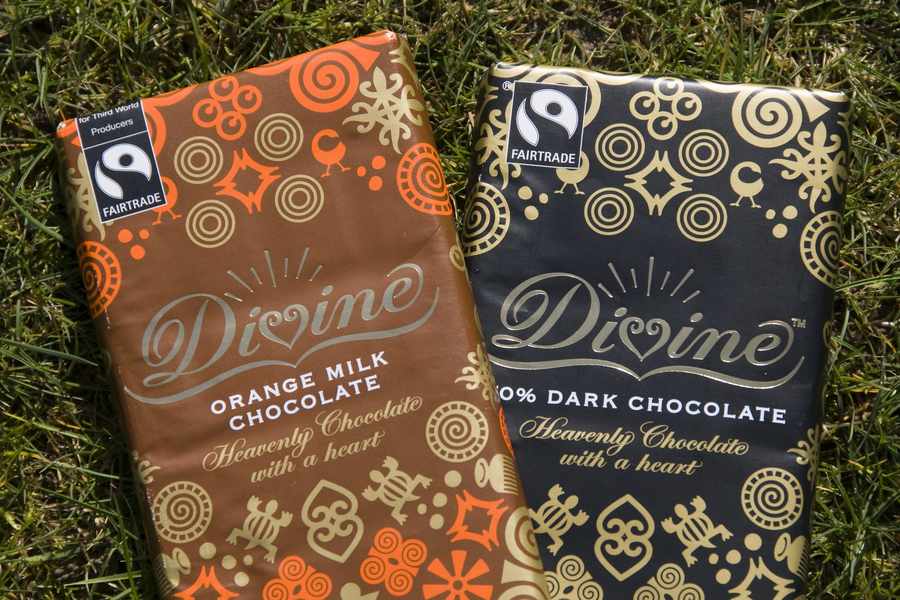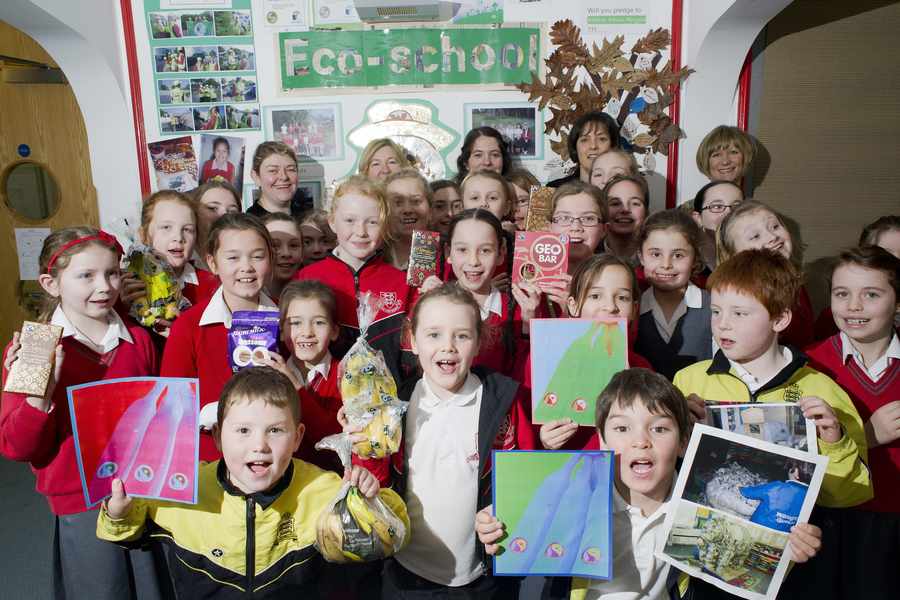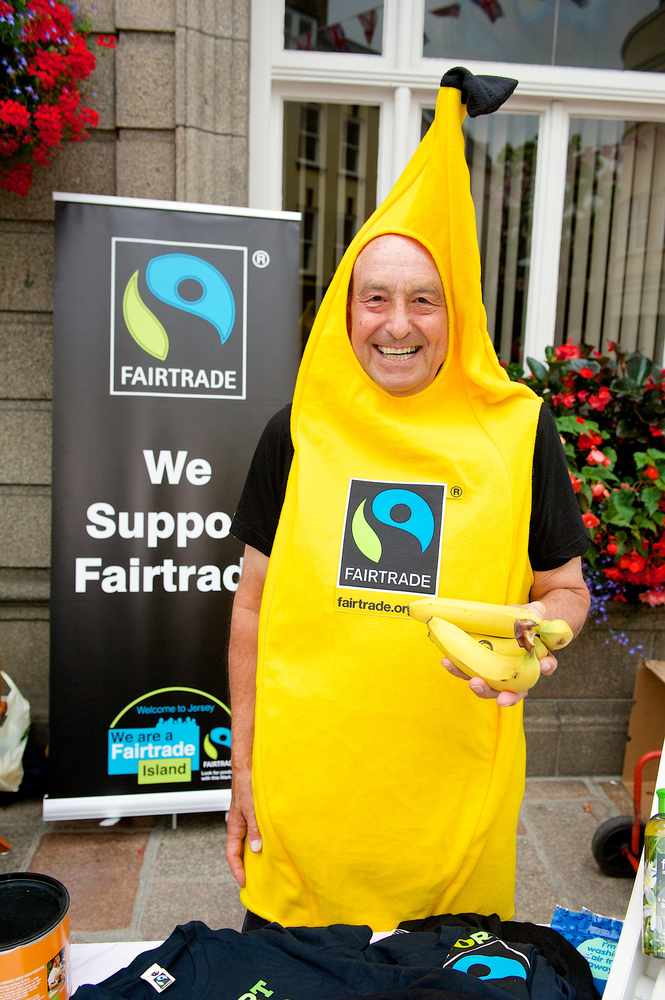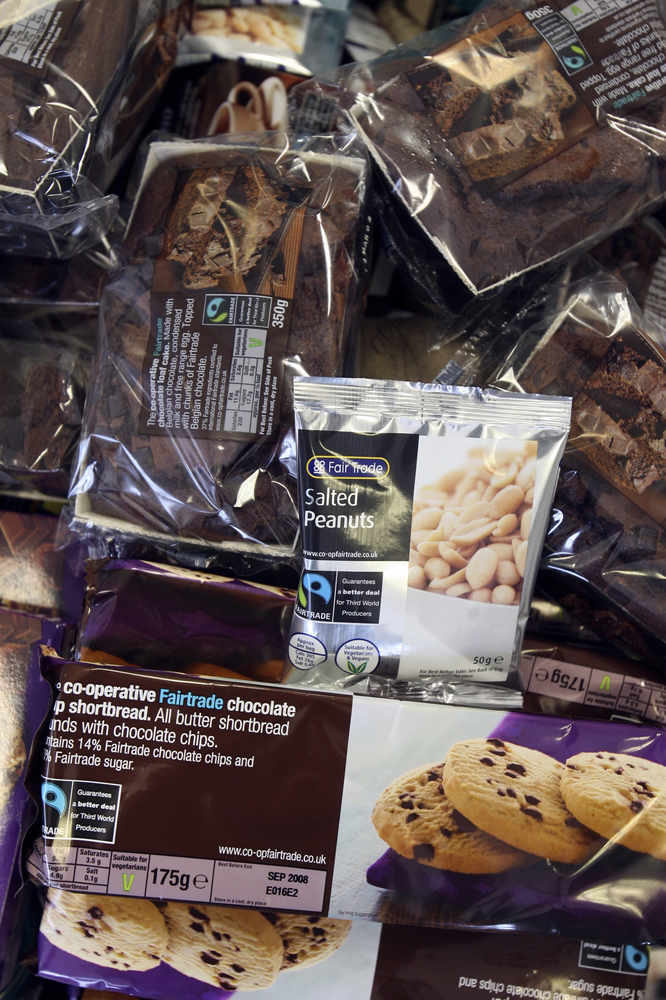- Jersey Fairtrade Island Group celebrating its tenth anniversary
- Jewellers being encouraged to support campaign for ethical jewellery
- Watch a video of an Islander’s visit to to Brazil to see Fairtrade farming in action
- Take part in our Fairtrade poll
JEWELLERS are being asked to improve the lives of precious-metal miners in the developing world by supporting the Fairtrade campaign for ethical jewellery.
They have been invited to the Jersey Fairtrade Island Group’s tenth anniversary celebrations of Jersey’s becoming a Fairtrade island, which takes place at St Paul’s Centre at 7 pm on Tuesday.
The guest speaker is Fairtrade jewellery activist Greg Valerio, who campaigns for better treatment of workers – including children – who mine for gold, silver and other precious metals.
- The Jersey Fairtrade Island Group (JFIG) was formed by volunteers in 2003 with the aim of raising awareness of and support for Fairtrade in Jersey.
- Jersey was awarded the status of Fairtrade Island in 2005.
- Fairtrade Jersey’s patron is Lee Durell. The chairman is Tony Allchurch and vice-chairman is Lucy Layton. Committee members include Jim Hopley, Joy Thomson, Tim Pedley, Francois Le Maistre, Derek Hart and Derek Gray.
- The group is sponsored by the Channel Islands Co-operative Society and Easenmyne Ltd.
- For more information or to join Fairtrade Jersey, contact Tony Allchurch on 767593.
He will also be speaking to students at Beaulieu and Jersey College for Girls.
Fairtrade is a global movement which works to achieve better prices, satisfactory working conditions, local sustainability and fair terms of trade for around one million farmers and workers in the developing world.
In addition, millions more benefit from investment in local communities.
Fairtrade works by paying producers premium prices to overcome the inequality of conventional trade, which traditionally discriminates against commercially disadvantaged producers.
Mining rights are generally given to large-scale industrial mining companies, so many small-scale miners work in illegal and hazardous conditions to make a living.
Becoming Fairtrade-certified and meeting Fairtrade Standards gives miners a guaranteed and fair price which helps them to improve their mining and business practices.
Jersey has been a Fairtrade Island since 2005, when the States agreed to support Fairtrade principles.
The local group comprises 200 members, including churches, businesses and schools.

Today, hundreds of Fairtrade products are readily available from supermarkets and other retailers Islandwide.
While bananas, tea, coffee and chocolate are the best known, products include wine, vegetables, fruit, flowers and clothing.
Tuesday’s event will also feature a Fairtrade wine tasting and Oxfam pop-up shop.
The chairman of the Jersey Fairtrade Island Group, Tony Allchurch, said the movement began in Island churches and schools before being taken up by business and the States.
‘There are 4,500 lines of Fairtrade products available in the UK and hundreds in Jersey, including something like 20 Fairtrade wines, tea, coffee and, in particular, chocolate,’ he said.
‘You can also get roses, and green vegetables from Kenya.
‘Bananas are still the biggest-selling Fairtrade produce but you can also get pineapples, oranges and lemons.’

- Many Jersey primary and secondary schools are members of the Jersey Fairtrade Island Group.
- Member schools are encouraged to hold an assembly about Fairtrade at least once a year, something that many choose to do during Fairtrade Fortnight, which takes place at the end of February and start of March.
- During the fortnight, the Fairtrade Group usually invite Fairtrade speakers to the Island who are available to address assemblies and give presentations on Fairtrade themes.
- Two local schools have now qualified as Fairtrade Schools. Jersey College for Girls and JCG Preparatory School both received their certificates in 2013.

TONY Allchurch of the Rotary Club of Jersey is one of 12 Rotarians from the British Isles to be recognised for their outstanding voluntary work in the community.
He is travelling to London next month to receive the Rotary Club of Great Britain Champion of Change award at a ceremony taking place in the House of Lords.
Mr Allchurch, who is also the chairman of the Jersey Fairtrade Island Group, has been recognised for his work in combating poverty, prejudice, bullying and conflict as part of the Rotary Peace Programme, and in working towards the Island becoming a Rotary Peace Community.
‘Of course it is a very humbling experience to be singled out for recognition when you have been operating as part of a Rotary team but I do take immense pride that our innovative peace project has been valued as a worthy contribution to engaging with our local community,’ he said.
What is Fairtrade?
- CI Vending
- C I W G/Spar
- Cafe des Sports
- Checkers
- Co-Op
- Cooper & Co
- Dunnell’s Premier Wines
- Easenmyne
- Flowers By Post
- Fox Trading (independent distributer/wholesaler)
- Health Essentials
- Marks & Spencer
- Oxfam
- Rosedale Stores
- The Organic Shop
- Vend!
- Victor Hugo Wines
- Waitrose

- Fairtrade is about better prices, decent working conditions, local sustainability, and fair terms of trade for farmers and workers in the developing world.
- By requiring companies to pay above market prices, Fairtrade addresses the injustices of conventional trade, which traditionally discriminates against the poorest, weakest producers. It enables them to improve their lot and have more control over their lives.
What is the FAIRTRADE mark?
- The FAIRTRADE mark is an independent consumer label which appears on UK products as a guarantee that they have given their producers a better deal.
- The mark is awarded by the Fairtrade Foundation, a registered charity set up by CAFOD, Christian Aid, Oxfam, Traidcraft Exchange and the World Development Movement.
- It shares internationally recognised Fairtrade standards with initiatives in 20 other countries, working together as Fairtrade Labelling Organisations International (FLO).
What does Fairtrade mean for third world producers?
- There are an estimated 1 million farmers and workers directly involved in Fairtrade. In addition, millions more people benefit indirectly from the investments in communities of the social premium.
- Fairtrade means better terms of trade and decent production conditions.
- The Fairtrade Foundation, with its partners, maintains these standards by regularly inspecting third world suppliers, and checking contracts and trade terms.
Why do some products claim to be fair trade but not carry the Mark?
- Some organisations like Oxfam and Traidcraft have been trading fairly for many years, and sell a wide range of fairly traded products. Consumers can trust these organisations, because challenging poverty is their main purpose.
- However, some other companies make their own fair trade claims without having the independent scrutiny of the FAIRTRADE mark, or the interests of producers at heart.
- If you are shopping and see tea, coffee, bananas or cocoa products without the mark, there is no guarantee that they give producers a fair deal.






